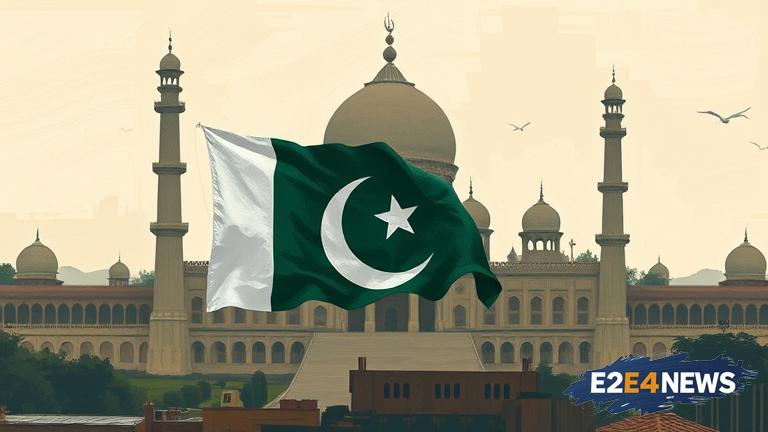The Pakistani state has been facing a multitude of challenges in recent years, which have led to a significant erosion of its authority and effectiveness. The country’s political landscape has been marred by instability, with frequent changes in government and a lack of continuity in policy-making. This has resulted in a lack of trust among the citizens, who are increasingly disillusioned with the state’s ability to deliver on its promises. The economy has also been a major concern, with high levels of debt, inflation, and unemployment. The state’s inability to effectively manage the economy has led to a decline in living standards, making it difficult for citizens to make ends meet. Furthermore, the country’s security situation remains precarious, with terrorist attacks and sectarian violence continuing to plague the nation. The state’s response to these challenges has been inadequate, with a lack of coordination and cooperation between different institutions and agencies. The judiciary has also been criticized for its role in perpetuating the status quo, rather than holding those in power accountable. The media has been subject to censorship and intimidation, limiting its ability to hold the state accountable. The civil society has been marginalized, with many organizations facing harassment and intimidation. The international community has also expressed concerns about the state’s human rights record, particularly with regards to the treatment of minorities and the use of military force in certain regions. Despite these challenges, there are still many who believe in the potential of the Pakistani state to deliver on its promises. However, this will require significant reforms, including the strengthening of institutions, the promotion of transparency and accountability, and the protection of human rights. The state must also take steps to address the root causes of extremism and terrorism, including poverty, inequality, and social injustice. Additionally, the state must work to improve its relationship with the citizens, by providing them with basic services such as healthcare, education, and sanitation. The state must also take steps to promote economic growth and development, by investing in infrastructure, promoting trade and commerce, and supporting entrepreneurship. Moreover, the state must work to strengthen its international relationships, by engaging in diplomatic efforts and promoting regional cooperation. The state must also take steps to address the issue of corruption, by implementing effective anti-corruption measures and holding those responsible accountable. The state must also work to promote the rule of law, by strengthening the judiciary and ensuring that all citizens are equal before the law. The state must also take steps to protect the environment, by implementing effective measures to reduce pollution and promote sustainable development. The state must also work to promote social justice, by addressing the root causes of poverty and inequality. The state must also take steps to promote women’s rights, by implementing effective measures to protect them from violence and discrimination. The state must also work to promote the rights of minorities, by implementing effective measures to protect them from persecution and discrimination. The state must also take steps to promote freedom of expression, by protecting the media and civil society from censorship and intimidation. The state must also work to promote transparency and accountability, by implementing effective measures to prevent corruption and ensure that all citizens have access to information. The state must also take steps to promote good governance, by strengthening institutions and ensuring that all citizens have a say in the decision-making process.
